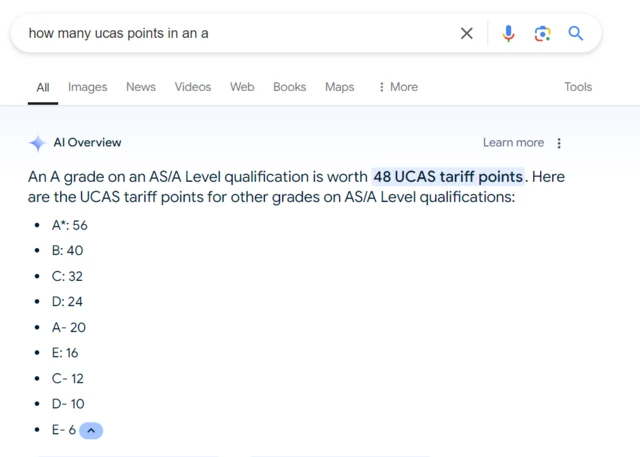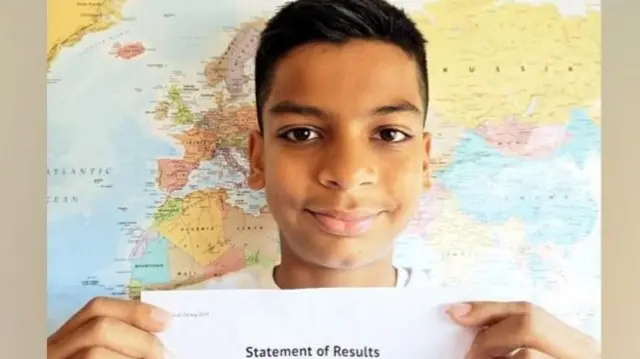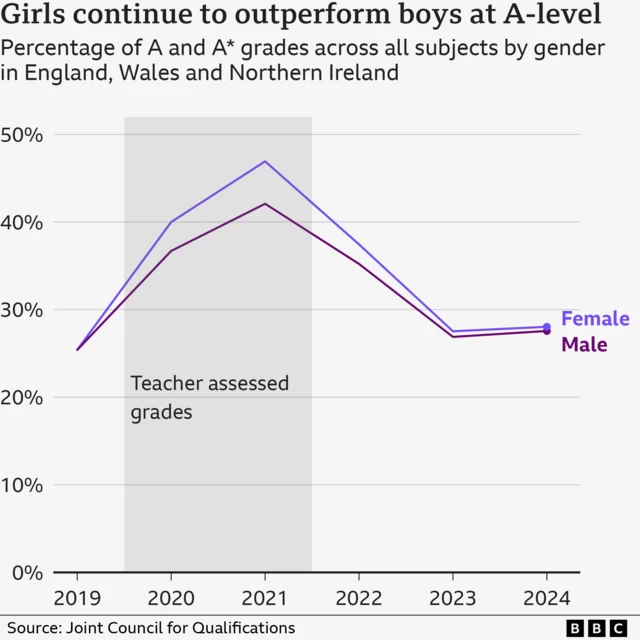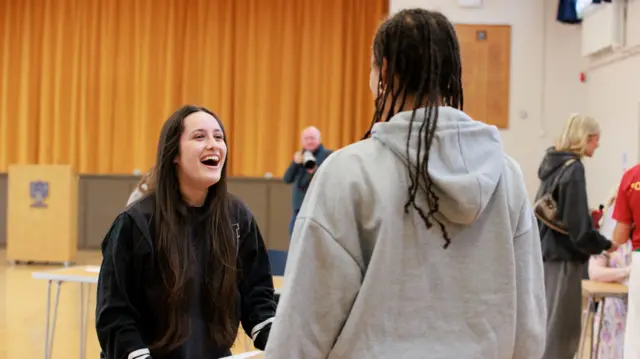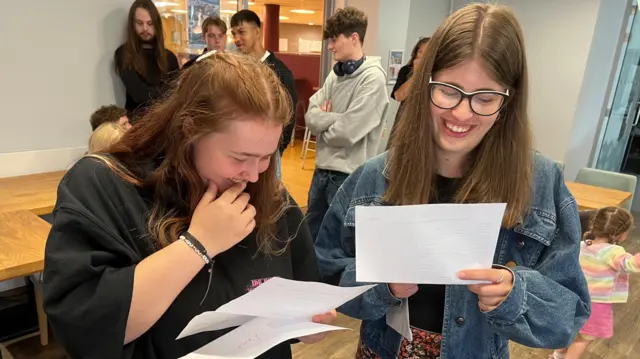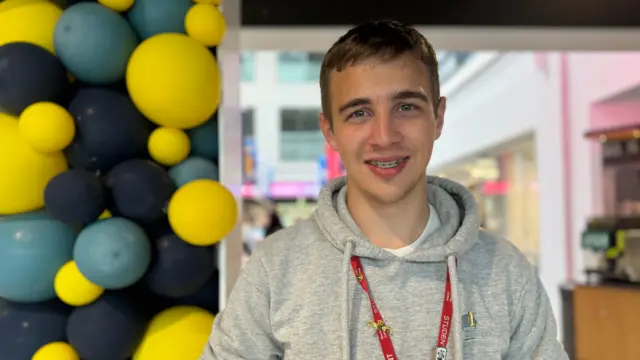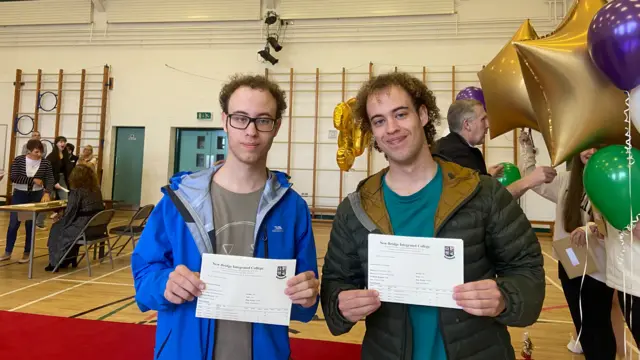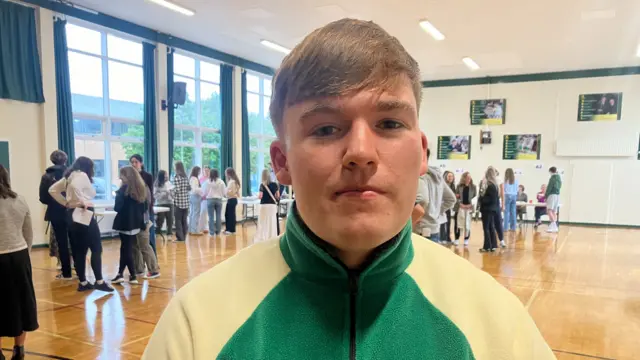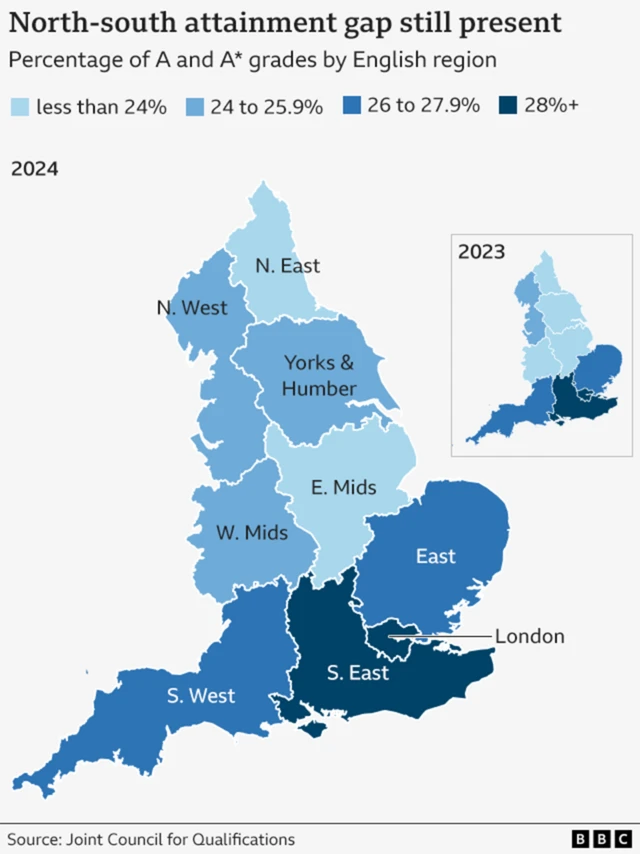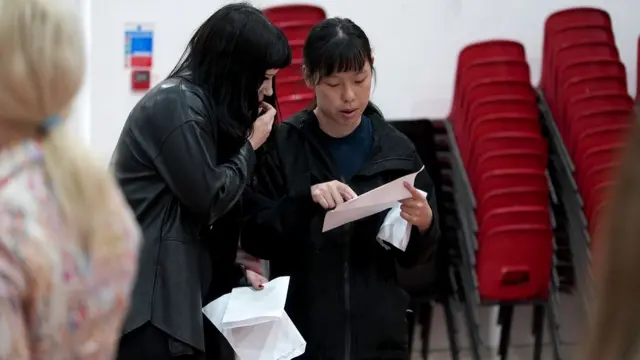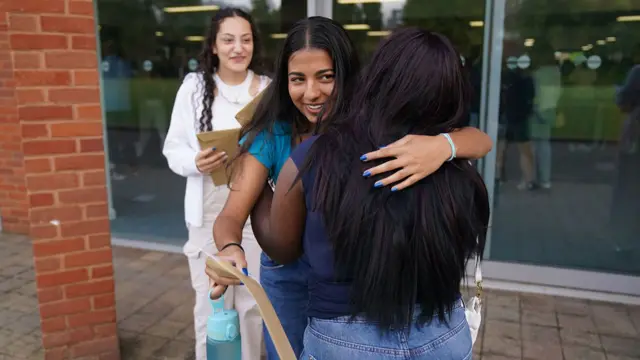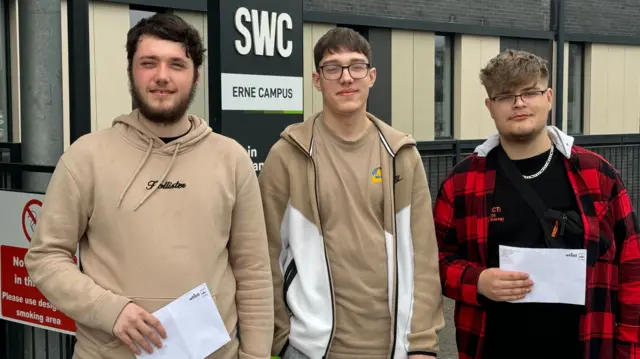Well done and good luckpublished at 17:26 BST 15 August 2024
 Malu Cursino
Malu Cursino
Live reporter
What a day. Well done to all of you receiving your A-level, T-level, BTec Nationals and other Level 3 results.
A lot of hard work got you through to this moment, and whatever the outcome we hope you can breathe a sigh of relief now - reassured that there are options available to you.
On that note, if you'd like to better understand clearing, head here. If an apprenticeship is part of your next steps, you can read more here. Or give our interactive guide on what to do next a go.
And to understand some of the key stats behind today's results, read our education team's full story.
Now relax, enjoy, and good luck with your next steps.
Today's coverage was produced by Hollie Cole, Nathan Standley, Seher Asaf, Rahib Khan, Catherine McGowan, Sam Hancock, Alice Evans and myself.



